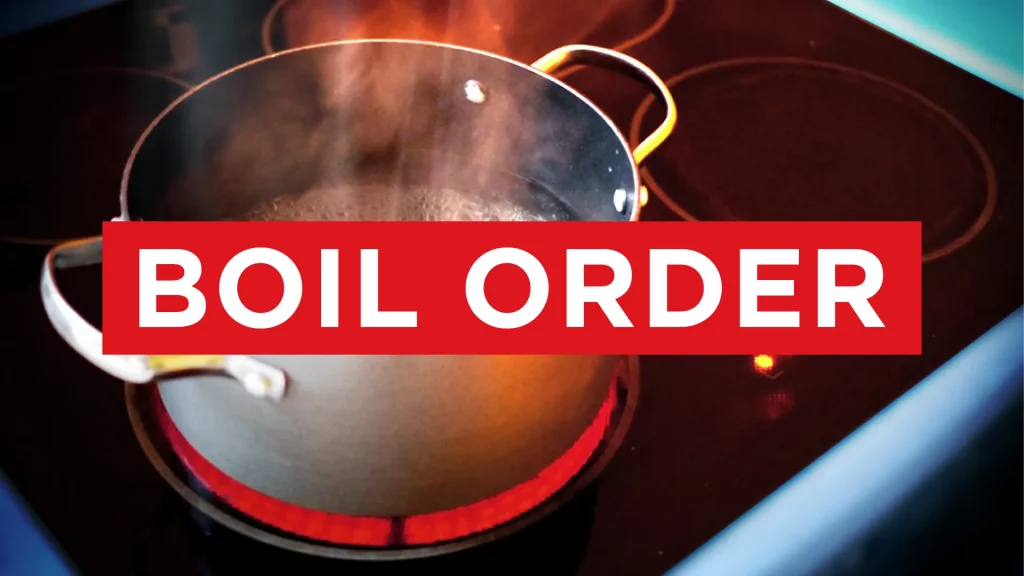Boil Order issued in Massena
August 22nd, 2024 by Ric Hanson
[Updated 7:26-p.m.] (Massena, Iowa) – Officials with the City of Massena report the City is currently under a BOIL ORDER until further notice. The Order was issued after a chemical pump malfunctioned, causing chlorine residual levels to become low. The city has replaced the chlorine injection pump, and the affected area is being disinfected and flushed. City officials are notifying residents via Facebook, public notices and door to door contact.
Officials say there is no reason to believe water quality has been compromised, but as a precaution, customers are encouraged to boil water that will be consumed or used for food preparation. Water should be boiled for two minutes and allowed to cool before use. Water is safe to use for showering, laundry, general washing and outdoor use without boiling.
Two sets of bacteria samples will be collected for testing once residual chlorine levels have returned to normal. The boil advisory will be lifted once two consecutive sets of bacterial samples have tested negative for bacteria.
Here are some tips from the Centers for Disease Control and Prevention, during a BOIL ORDER:
- If bottled water is not available, bring water to a full rolling boil for 1 minute (at elevations above 6,500 feet, boil for 3 minutes). After boiling, allow the water to cool before use.
- Boil tap water even if it is filtered (for example, by a home water filter or a pitcher that filters water).
- Do not use water from any appliance connected to your water line, such as ice and water from a refrigerator.
- Breastfeeding is the best infant feeding option. If you formula feed your child, provide ready-to-use formula, if possible.
Handwashing
- In many cases, you can use tap water and soap to wash hands during a boil water advisory. Follow the guidance from your local public health officials.
- Be sure to scrub your hands with soap and water for at least 20 seconds. Then, rinse them well under running water.
- If soap and water are not available, use an alcohol-based hand sanitizer that contains at least 60% alcohol.
Bathing and showering
- Be careful not to swallow any water when bathing or showering.
- Use caution when bathing babies and young children. Consider giving them a sponge bath to reduce the chance of them swallowing water.

Brushing teeth
- Brush teeth with boiled or bottled water. Do not use tap water that you have not boiled first.
Washing dishes
- If possible, use disposable plates, cups, and utensils during a boil water advisory.
- Household dishwashers generally are safe to use if:
- The water reaches a final rinse temperature of at least 150 degrees Fahrenheit (66°Celsius), or
- The dishwater has a sanitizing cycle.
- Sanitize all baby bottles.
- To wash dishes by hand:
- Wash and rinse the dishes as you normally would using hot water.
- In a separate basin, add 1 teaspoon of unscented household liquid bleach for each gallon of warm water.
- Soak the rinsed dishes in the water for at least one minute.
- Let the dishes air dry completely before using again.
Laundry
- It is safe to wash clothes as usual.
Cleaning
- Clean washable toys and surfaces with:
- Bottled water,
- Boiled water, or
- Water that has been disinfected with bleach [PDF – 1 page].
Caring for pets
- Pets can get sick from some of the same germs as people or spread germs to people. Give pets bottled water or boiled water that has cooled.
- If bottled water is not available, bring water to a full rolling boil for 1 minute (at elevations above 6,500 feet, boil for 3 minutes). After boiling, allow the water to cool before use.
- Boil tap water even if it is filtered (for example, by a home water filter or a pitcher that filters water).
- Do not use water from any appliance connected to your water line, such as ice and water from a refrigerator.
Caring for your garden and houseplants
- You can use tap water for household plants and gardens.





